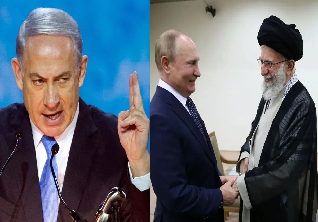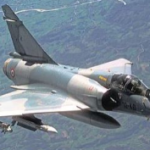Written By
Lakshmi Ranjith
U.S. President Donald Trump’s approval of weapons and ammunition for Israel has sparked global speculation about the future of Israel-Iran relations. Israeli Prime Minister Benjamin Netanyahu’s public thank-you video contained subtle yet significant hints about how these arms would be used. His remarks left international analysts stunned, as he openly stated that Trump’s decision to unblock the weapons—previously halted by the Biden administration—would help Israel “finish the job against Iran’s terror axis.”
Just hours after Netanyahu’s video surfaced, Western news agency Reuters reported that several senior Russian missile specialists had visited Iran over the past year, highlighting the growing defense ties between Tehran and Moscow.
Who Visited Iran And Why?
According to the Reuters report, Several senior Russian missile specialists have visited Iran over the past year as the Islamic Republic has deepened its defence cooperation with Moscow- Reuters reported this on the basis of review of travel records and employment data.
According to travel records, seven weapons experts were scheduled to fly from Moscow to Tehran on two separate occasions last year—first on April 24 and then again on September 17. Passenger manifests confirmed their presence on the second flight.
Reports says that two experts that visited are experts in air-defence missile systems, three specialize in artillery and rocketry. One of them has a background in advanced weapons development and another has worked at a missile-testing range. There employment data ranged from 2021 to 2024. The seven Russians identified by Reuters all have senior military backgrounds, with two ranked colonel and two lieutenant-colonel.
Reuters claimed that a senior Iranian defence ministry official said Russian missile experts had made multiple visits to Iranian missile production sites last year, including two underground facilities, with some of the visits taking place in September.
Reuters Has Named The Visitors To Moscow
“Denis Kalko, 48, and 46-year-old Vadim Malov were among the five Russian weapons experts whose seats were booked as a group on the April flight, the records showed. Kalko worked at the defence ministry’s Academy for Military Anti-Aircraft Defence, tax records for 2021 show. Malov worked for a military unit that trains anti-aircraft missile forces, according to car ownership records for 2024. Andrei Gusev, 45, Alexander Antonov, 43, and Marat Khusainov, 54, were also booked on the April flight.”-says report
However, Reuters was unable to determine what the seven were doing in Iran. It also says that the agency was unclear if any had specific expertise on nuclear weapons.
Iran-Israel Standoff
Iran’s proxies — including Gaza’s Hamas, Lebanon’s Hezbollah and Yemen’s Houthis — have launched attacks on Israel since October 7, 2023 Israel-Palestine war. Israel and Lebanese Hezbollah, an Iran-backed proxy, continue to escalate tensions under what Israel has termed Operation Northern Arrows. In mid-September 2024, Israeli intelligence carried out a large-scale sabotage operation, detonating thousands of Hezbollah’s beepers and walkie-talkies. The attack reportedly killed dozens of Hezbollah members and injured thousands more.
Just weeks later, on September 27, 2024, Israel launched an airstrike on Hezbollah’s Beirut headquarters, killing its leader, Hassan Nasrallah. This marked the peak of Israel’s targeted campaign against Hezbollah’s leadership, which had already claimed the lives of several senior figures that month.
Islamic Republic Bolstered Defense Ties With Moscow
Russia and Iran strengthened their partnership by signing a new treaty in January, reinforcing their economic and military ties. Since launching its military campaign in Ukraine in February 2022, Moscow has increasingly turned to Iran as a strategic ally.
The agreement focuses on boosting trade and economic collaboration across various sectors—an important move as both nations face Western sanctions targeting their energy industries. It also includes provisions for military cooperation, such as training personnel and allowing each country’s warships to dock at the other’s ports.
Notably, the treaty does not explicitly mention weapon exchanges, a sensitive topic that has already led to Western sanctions on both nations. Moscow and Tehran had been working on a new treaty for years. Their previous relationship was governed by a 2001 document they have renewed periodically.



